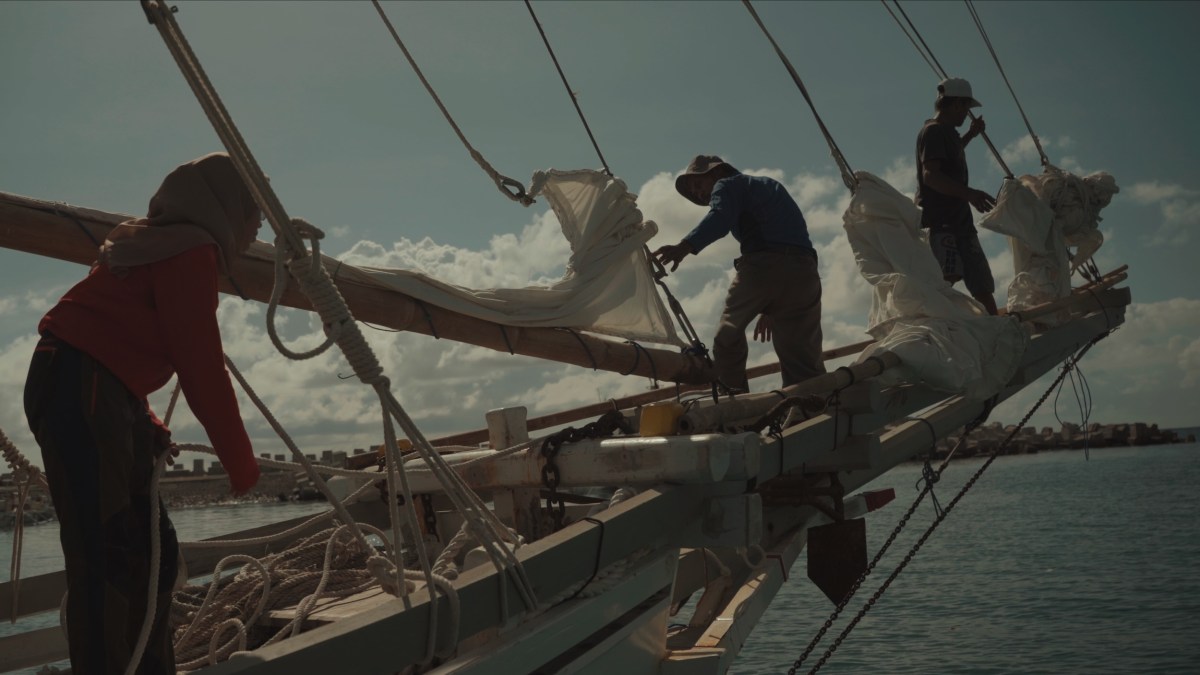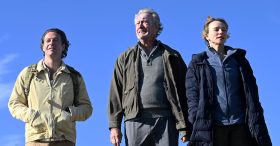Many, many years before Australia was colonised by European settlers, the Indigenous peoples of the land were part of a unique trading network – one that extended to China’s Qing Dynasty.
Historians have confirmed that, hundreds of years before colonisation, Indonesian ‘Makassan‘ fishing fleets would harvest sea cucumber alongside the people from Arnhem Land, and that their catch wound up being served in China’s Qing dynasty.
By 1907 that trade was stopped by colonial authorities. This is a connection ‘well known and well told’ in Makassar, Arnhem Land and Groote Eylandt – but not as recognised across the rest of Australia and Indonesia.
Waŋgany Mala, a new documentary, highlights those ties between ancient Australian and Indonesian First Nations folk. The film will premiere on 23 October at Darwin’s Deckchair Cinema in the NT.
Watch the trailer for Waŋgany Mala
The story follows Nirmala Syarifuddin Baco (AKA Mala), a young Muslim woman who is part of a team of boat builders making a traditional Makassan sailing ship (or pinisi prau) – the same boat that made the journey to Australia over 500 years ago.
Through Mala, the film explores her region’s ongoing connections to Maregé (the Makassan term for Australia). The film culminates with a discovery that Mala’s journey has a ‘miraculous connection’ to the local stories of Australia.
Professor Marcia Langton AO, described Waŋgany Mala as ‘a profoundly important film’. It was produced over five years in close collaboration with First Nations Knowledge Holders in Arnhem Land, and Groote Eylandt in the north of Australia. Filming also took place across South and Southeast Sulawesi, Indonesia – with featured subjects speaking Yolŋu, Amamalya Ayakwa (Anindilyakwa, Groote Eylandt), Bahasa Indonesia, and Coastal Konjo (South Sulawesi) languages.
Set to a distinctive soundtrack by experimental Melbourne composer Fia Fiell, the film features rarely seen archival imagery, including sequences of boat destruction at sea by Australia’s Maritime Border Command.
ScreenHub: Screen Australia: nine documentaries to share $2.3 million funding
Waŋgany Mala was part of the 2024 Garma Festival and has screened to sold out audiences at the Melbourne Documentary Film Festival. It will also screen at Ubud Writers Festival on Saturday 26 October, and is currently seeking distribution partners.
Waŋgany Mala – which translates to ‘let’s be one clan’ in Yolŋu – has been produced and directed by Naarm/Melbourne filmmaker Will McCallum. Arnhem-based Yolŋu artist, cultural facilitator and filmmaker Arian Pearson is a producer, along with Abdi Karya, a Yogyakarta-based, Makassar-born artist who has exhibited and curated widely across Europe, the United States and Australia. The film was produced in collaboration with the Anindilyakwa Land Council, The Groote Eylandt Language Centre and The Mulka Project.
For more information, see the Documentary Australia website.





